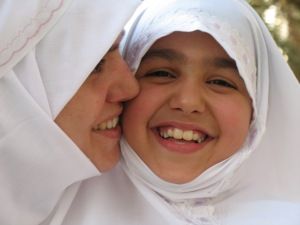News
Danish mosque continues to make history
This article is more than 9 years old.
Mariam mosque in Copenhagen will be the first mosque in the Nordic region to perform Friday prayers led by a female imam

Miriam mosque wants to offer a more modern choice for Muslim women (photo: Ibrahim)
Six months after the opening of Denmark’s first mosque with female imams, Mariam mosque in central Copenhagen will hold the first Friday prayers in the Nordic region to be led by a female imam.
The event will take place on Friday August 26 and will only be open to women.
“We have conducted other Islamic ceremonies, but this will be the first Friday prayers in Scandinavia led by a female imam,” said Sherin Khankan, one of the women behind the mosque, on her Facebook page.
A more modern Islam
Imam Saliha Marie Fetteh, a former lecturer from the University of Southern Denmark, will be coming to lead the prayers. Fetteh speaks fluent Arabic after living in Iraq for nine years.
The goal of the Mariam mosque is to offer Muslims a more modernistic and spiritual version of Islam than they are accustomed to in the existing mosques.
“We attract a new generation of young Muslims who are relieved to finally find an understanding of Islam they can identify with,” Khankan told Metroxpress. “It is more open and has a greater focus on women’s rights.”
Some critics
The Mariam mosque has come under criticism by groups like the Danish Islamic Centre, which has said that female mosques dilute Islam.
READ MORE: Imam at Danish mosque recommends stonings and floggings for adulterers
Mariam mosque said the decision to make the first Friday prayers women-only was not an effort to exclude men, rather to avoid unnecessary controversy.
‘We want to create change, but we do not want to burn bridges behind us,”said Khankan. “We are on strong theological ground by having a woman lead other women in Friday prayers. We try to be on safe ground when we create change.”
A start
In the beginning, Friday prayers in Mariam mosque will be held every other month. Eventually, the mosque hopes they can be held every week.
All women – regardless of faith – are welcome to attend Friday prayers, and a scarf is not required.










































